This annual workshop, organised by Informatics Europe in collaboration with the National Informatics Associations (NIAs) in Europe, was open to all participants of ECSS 2022. The workshop was held on Wednesday, 26 October and co-chaired by Pekka Orponen, Aalto University, and Michael Goedicke, University of Duisburg-Essen.
The theme of this year’s Workshop was Open Science and the Future of Research Dissemination in Informatics. The Open Science movement is currently leading to deep changes in scientific practices across all fields of science. This transformation is fundamentally driven by the new modes of collaboration made possible by advances in Informatics, but what are the opportunities and expectations for Open Science within Informatics itself? In particular, how could we use this opportunity to improve the Informatics publication and data sharing practices?
The Workshop addressed this theme along three concrete topics, each with its own 90 min session chaired by the respective Task Force Chair of the Informatics Europe Working Group on Open Science. Here is some background information for the sessions:
Session 1 - Rethinking the Role of Informatics Conferences
The session discussed the prominent role played in informatics by conferences as means of research dissemination and how this may change in the future.
Conferences have always played a prominent role in research dissemination in informatics. Publishing in conferences is considered as a legitimate form of dissemination, as is publication in scientific journals. Publishing in premier conferences is a prestigious achievement, as is publication in a premier journal. In most other scientific areas, conferences have instead a lesser role in research dissemination. This has caused serious problems when research in different areas is evaluated and high quality work has to be recognized. The situation is further complicated by the proliferation of dissemination venues. While some consensus on the criteria to be used to objectively assess the quality of a journal are emerging, conferences are still mostly neglected. This is causing disconcert, especially in the young researchers.
While these problems have been traditionally recognized by the informatics research community, new problems entered the research diffusion landscape in the recent years. First, new publication models, which tend to blend conferences and journals, have been experimented by certain communities. Second, the recognition that dissemination not only concerns papers, which describe the findings of a given research, but, increasingly, also artifacts (such as tools, prototypes, datasets, etc.). Third, the awareness of the need for sustainable research dissemination models, which point to negative impact of conferences on the carbon footprint.
[Slides by Carlo Ghezzi] [Slides by Stefano Paraboschi]
Further readings for this session:
- San Francisco Declaration on Research Assessment: https://sfdora.org/read/
- Informatics Europe: Joint Statement on Informatics Research Evaluation
- Communications of ACM, Conferences and carbon impact: https://cacm.acm.org/magazines/2020/3/243015-conferences-and-carbon-impact/fulltext
- Communications of the ACM, Moshe Vardi's articles on conferences and publication in Computer Science:
https://cacm.acm.org/magazines/2021/1/249441-reboot-the-computing-research-publication-systems/fulltext# - CORE Rankings: https://www.core.edu.au/conference-portal
- GII-GRIN-SCIE Conference Rating:
https://scie.lcc.uma.es:8443/gii-grin-scie-rating/conferenceRating.jsf;jsessionid=785F668F8648A678D6887A3B2D711FD7
Session 2 - Open access publication models for Informatics
The aim of the Open Access (OA) publishing model is to allow readers to openly access research results. As such, it is expected to have a strong impact and make profound changes in scientific publishing. The main objectives of OA are, among others, to improve dissemination on a global scale, to make research outputs accessible to people who do not have access to paywall-based distribution systems, to enhance knowledge transfer, to make the research process more transparent to the taxpayer, and to make research results perpetual.
Despite their recognised advantages, the successful implementation and adoption of the various OA models is not free from problems. For example, shifting publication costs from readers to authors introduces a financial bias. In the platinum model, where no one seems to pay, the costs are effectively swept under the carpet because the efforts, infrastructure and organisational costs are borne pro-bono by volunteers or by the community behind the journal. The golden model can also introduce some unethical practices, such as inflating publication figures, squeezing review processes, or putting pressure on editors, therefore artificially increasing the entropy of the overall system. Transformation agreements, which aim to provide fair compensation to publishers, do not solve these problems either. Furthermore, despite the increasing adoption of the DORA declaration, many institutions and research review panels may still not give proper credit to publications in diamond or platinum open access venues that do not have a well-known publisher. Finally, there remains a significant lack of awareness among academics of the OA approach and its publishing models.
All these issues need to be addressed by the community, and workable solutions need to be discussed. Additionally, we need to identify further risks and challenges both in the adoption of any of the existing open access models or in any change we propose to them.
We are particularly interested in solutions to alleviate the problems that the implementation of OA publication models currently have, the risks that the introduction of these solutions may have, and, in general, how to improve the transition from the subscription-based system to a full OA model.
[Slides by Roberto Di Cosmo] [Slides by Laurent Romary]
Further readings for this session:
- San Francisco Declaration on Research Assessment: https://sfdora.org/read/
- Alfonso Pierantonio, Mark van den Brand, Benoit Combemale. “Open Access: all you wanted to know and never dared to ask,” Journal of Object Technology, Volume 19, no. 1 ( 2020), pp. 1-4, doi:10.5381/jot.2020.19.1.e1.
- Morais, R. and Borrell-Damian, L. (2018). Open Access 2016–2017 EUA Survey Results. Retrieved August 2018, 30:2018.
https://eua.eu/downloads/publications/open%20access%202016-2017%20eua%20survey%20results.pdf - Van Noorden, R. (2013). "Open access: The true cost of science publishing," Nature 495 (27 March 2013), 426-429.
https://doi.org/10.1038/495426a
Session 3 - Open Data and Research Data Management in Informatics
Open data has become a general requirement for various areas of our daily life - not only as scientists but also for the general public. We would like to focus on the influence of open data for the daily scientific routines and the way scientific findings are documented and published in a transparent way. The field of research data management (RDM) is one important element to achieve such transparency and is a specific disciplinary and transdisciplinary collection of methods, routines, practices, tools and infrastructures supporting the so-called FAIR principles (findable, accessible, interoperable and reusable) [1]. In order to gain worldwide adoption in a structured and systematic way, RDM for computer science needs coordination also at an international level. This means agreed metadata standards, processes and interoperation protocols need to be defined and implemented to support those FAIR principles.
Informatics Europe plans to support related activities by reaching out to members and associations for exchange and integrating national activities at the international level. The aim is to define common interests, necessary processes and agreement on standards of metadata, interoperation protocols, etc.
References:
[1] The GO-FAIR Implementation Initiative: https://www.go-fair.org/
To help us customize the workshop, a pre-event survey was conducted to collect the feedback on the above topics.
Workshop Highlights
Together with the National Informatics Associations (NIAs), the IE Working Group on Open Science co-organised this year’s NIAs workshop in discussing three topics under the theme “Open Science and the Future of Research Dissemination in Informatics”.
The work initiated at the workshop will be pursued further in three Task Forces under WG Open Science, with the following goals: a white paper on the future of Informatics conferences and quality indicators for the conference publishing process (TF Conference Maturity Model); an analysis and position paper on Open Access publishing approaches, in particular the rapidly growing pay-to-publish model (TF Open Access); and a proposal for a common metadata scheme to support research data interoperability in Informatics (TF Research Data Management).
In general, the tensions between indicator-based and qualitative research assessment were raised several times at the workshop, and the workshop commissioned from IE a descriptive report on best practices in research assessment across Europe, to be compiled in collaboration with the NIAs. All participants and the community-at-large were also encouraged to sign the COARA Agreement for reforming research assessment.
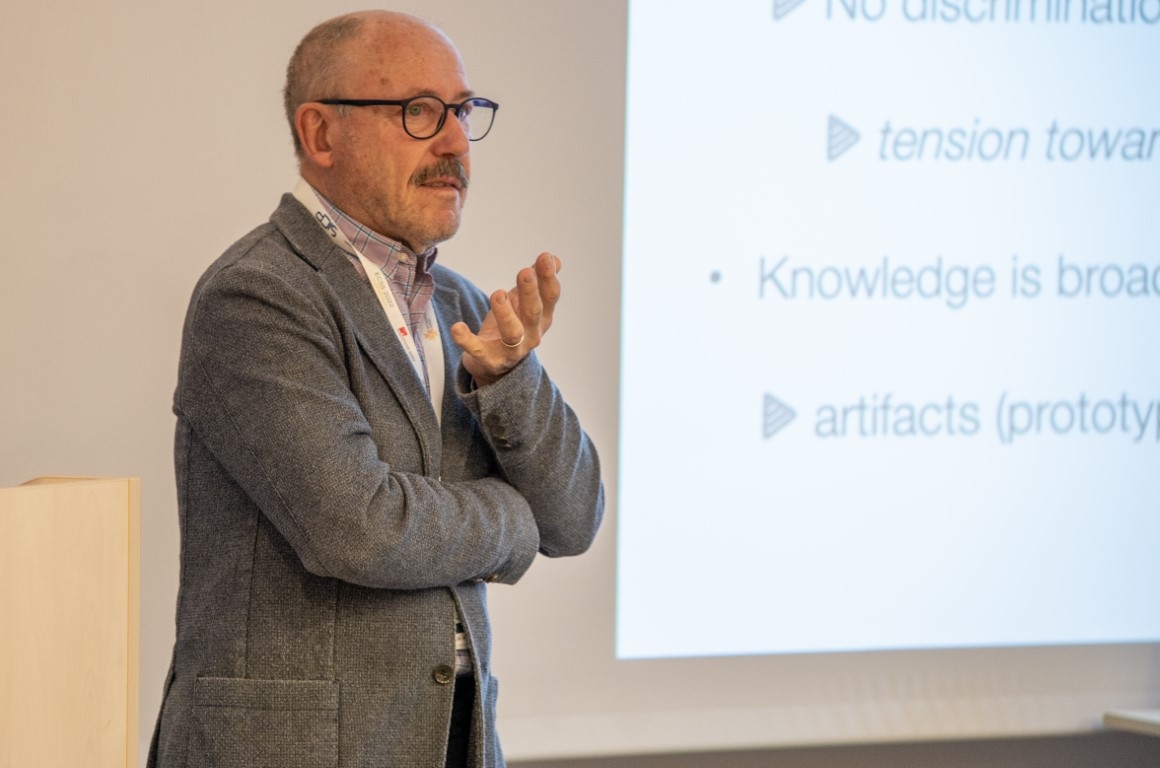
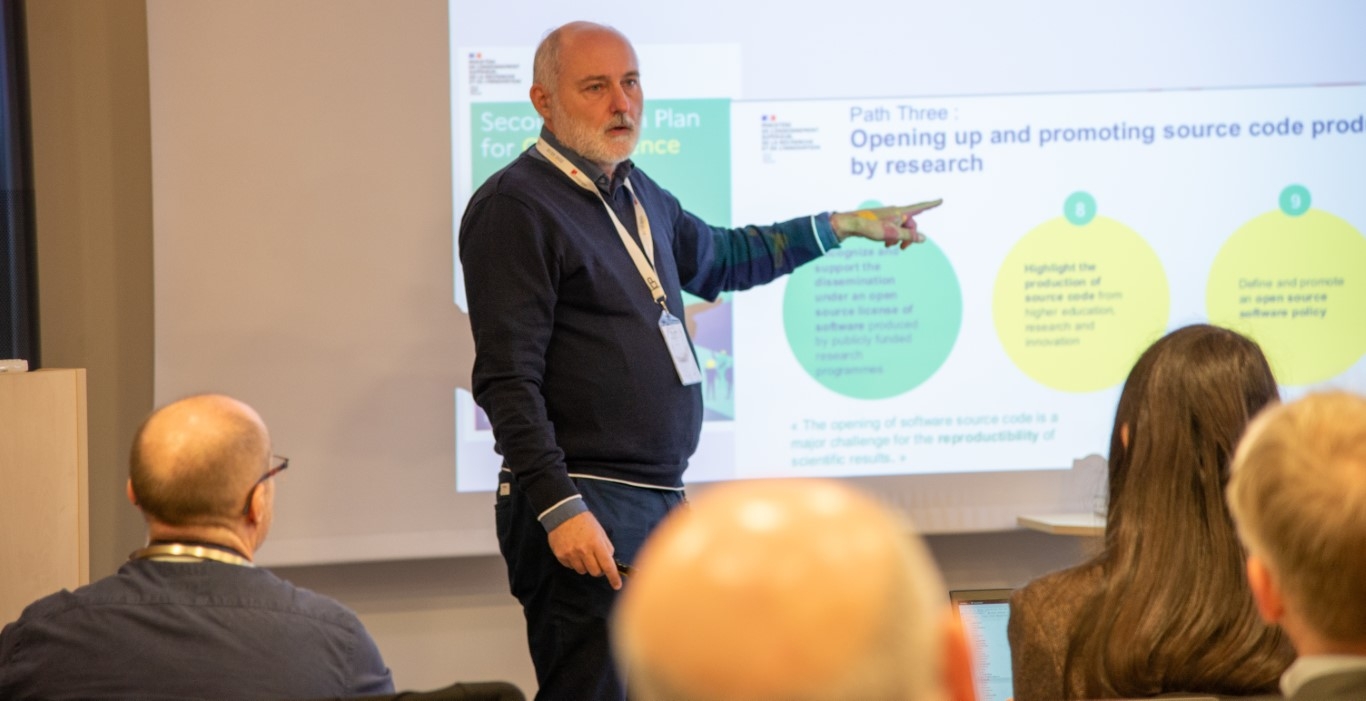
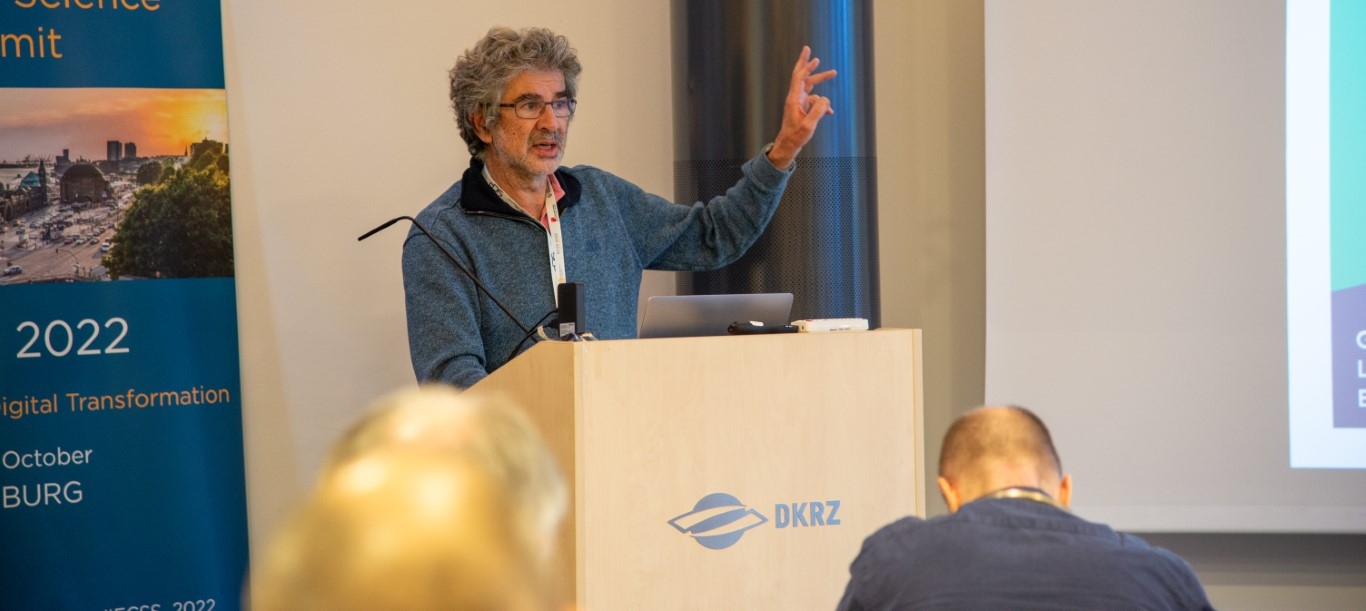
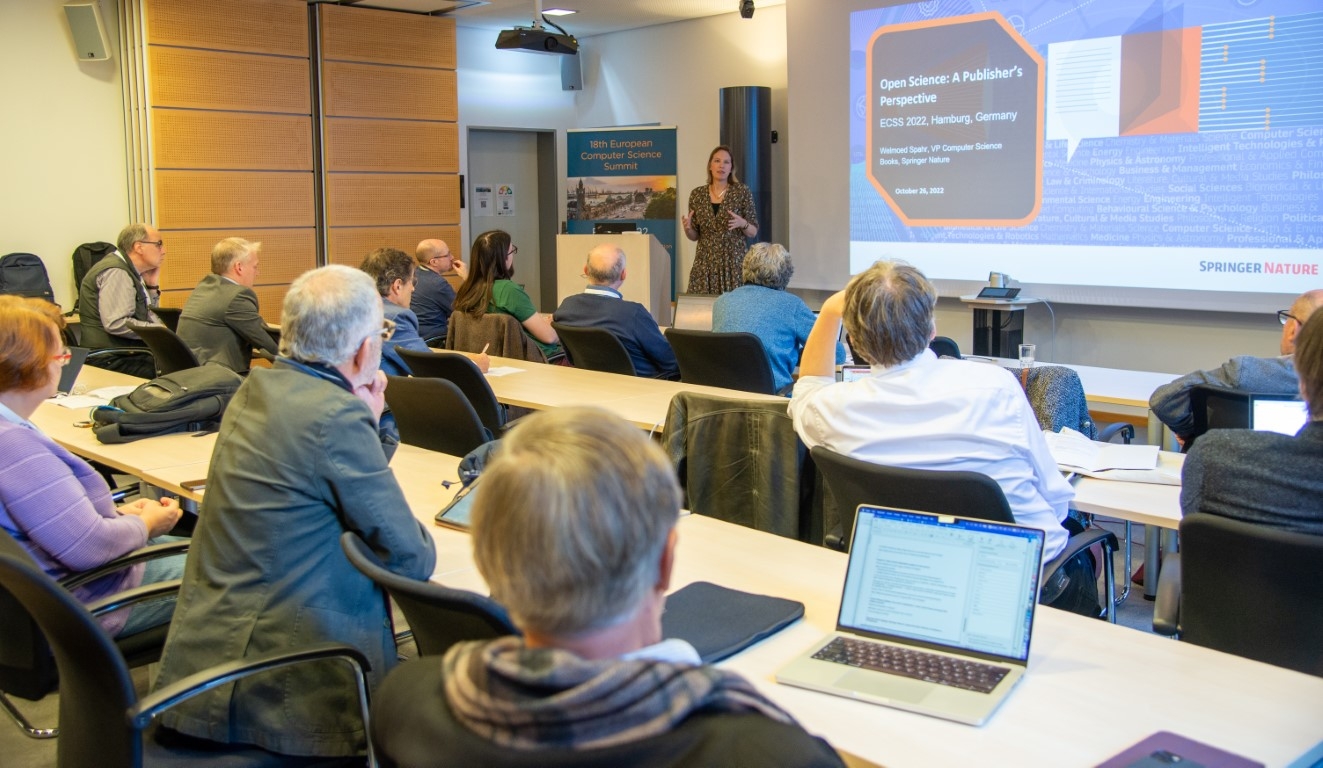
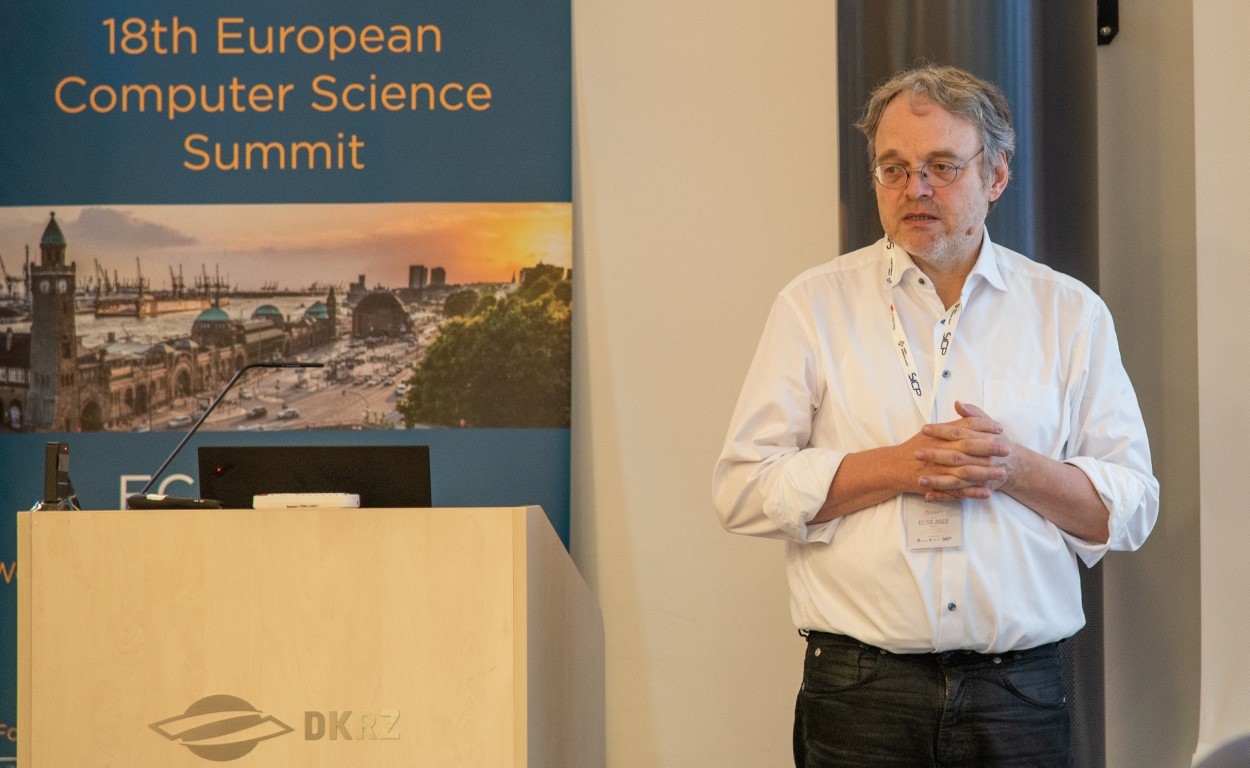

-
Carlo Ghezzi, Politecnico di Milano, Italy
-
Roberto Di Cosmo, Inria / Software Heritage, France
-
Laurent Romary, IRISA, France
-
Welmoed Spahr, Apress/Spring Nature Books Group, presenting at the Open Science Workshop
-
Michael Goedicke, University of Duisburg-Essen, Germany
-
Workshop Chairs and Keynote Speakers of "Open Science and the Future of Research Dissemination in Informatics" Workshop, co-organized with National Informatics Associations
*Please note that the photos above are better viewed when applying zoom out.

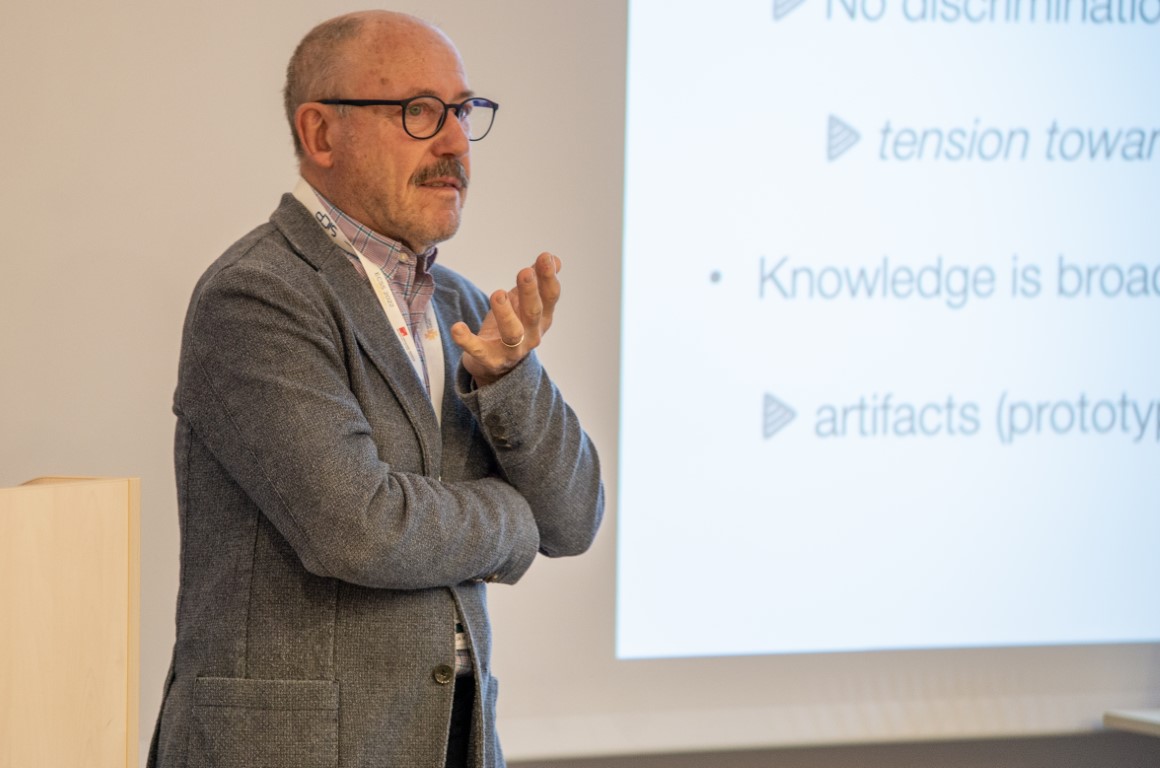
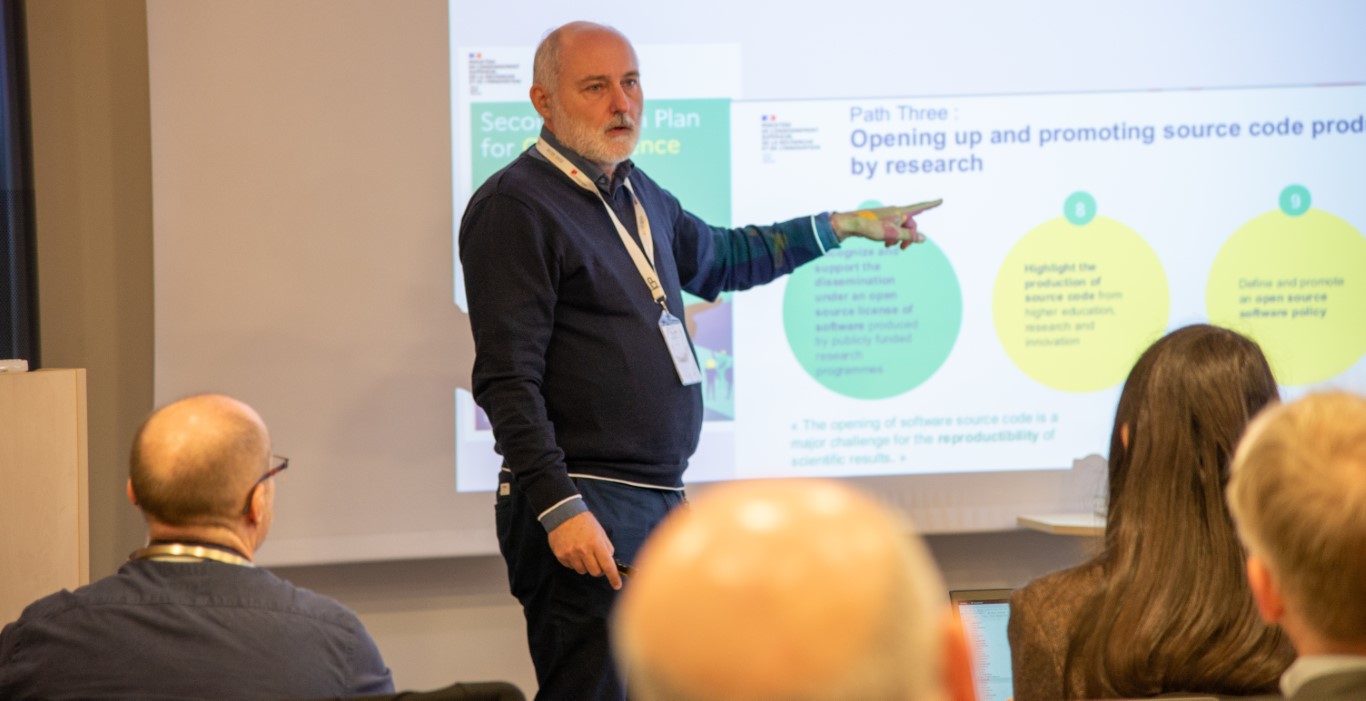
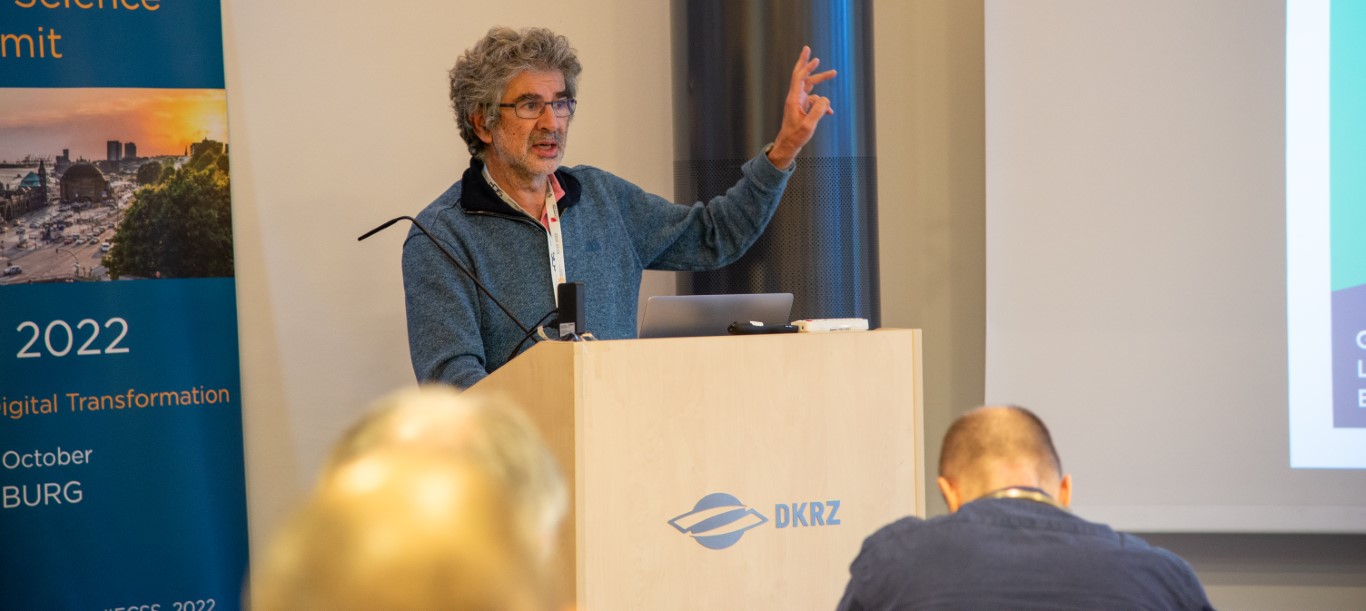
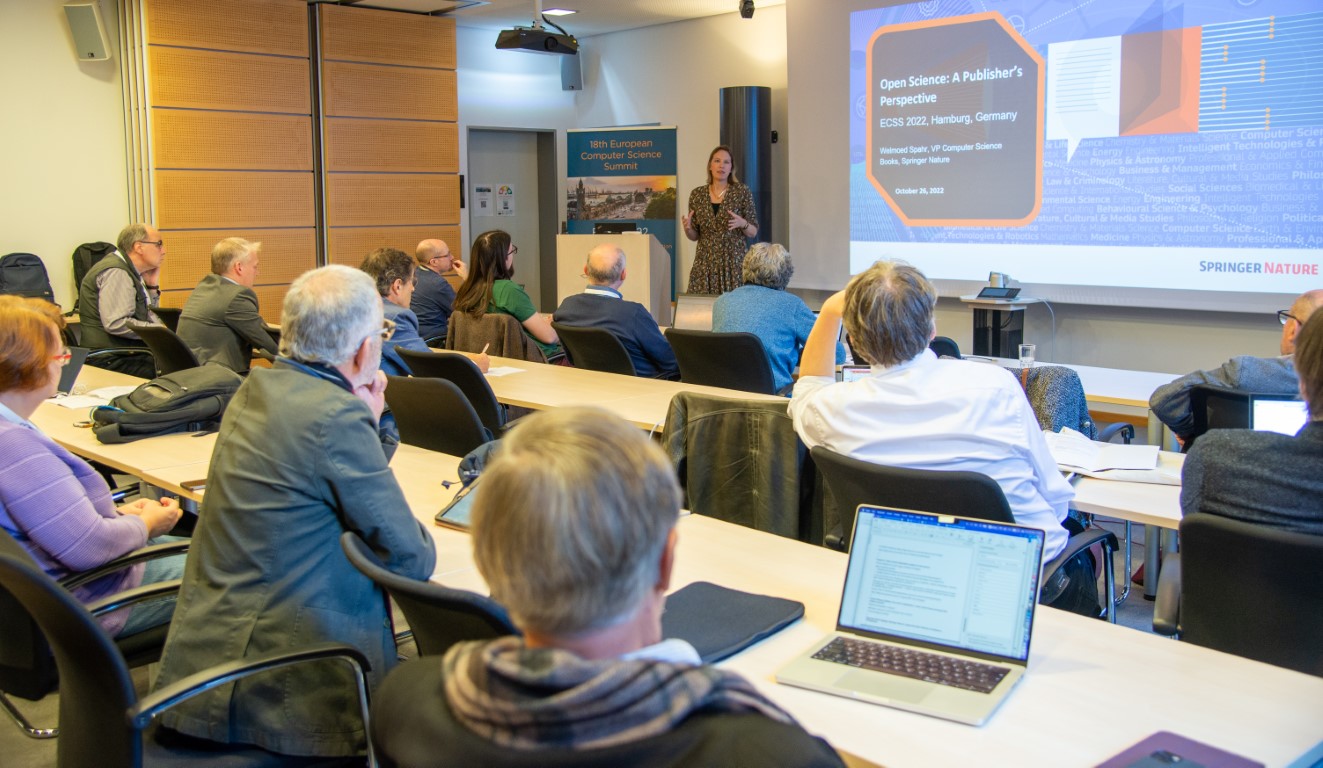
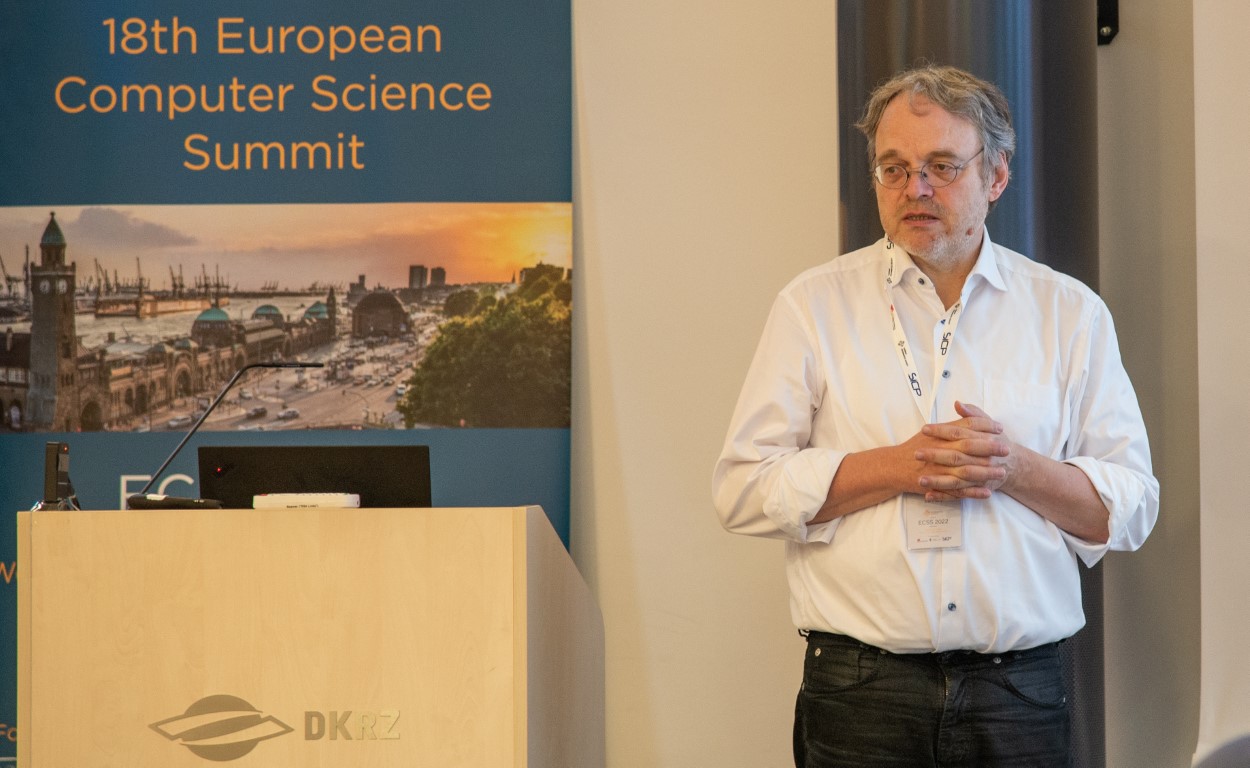
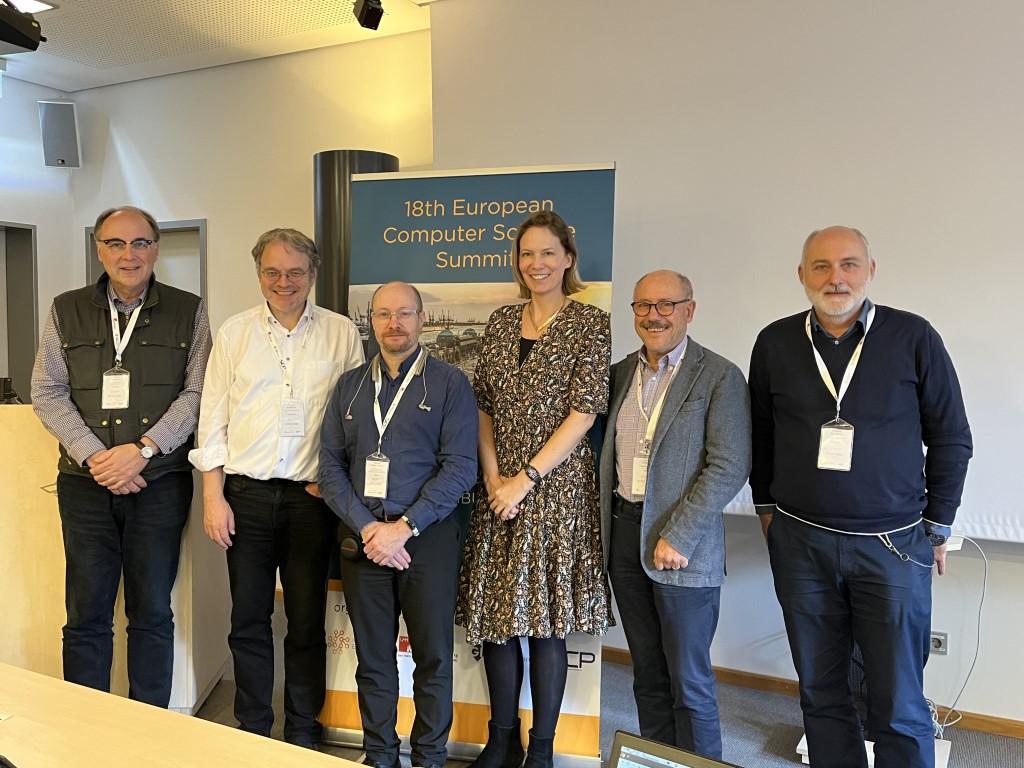






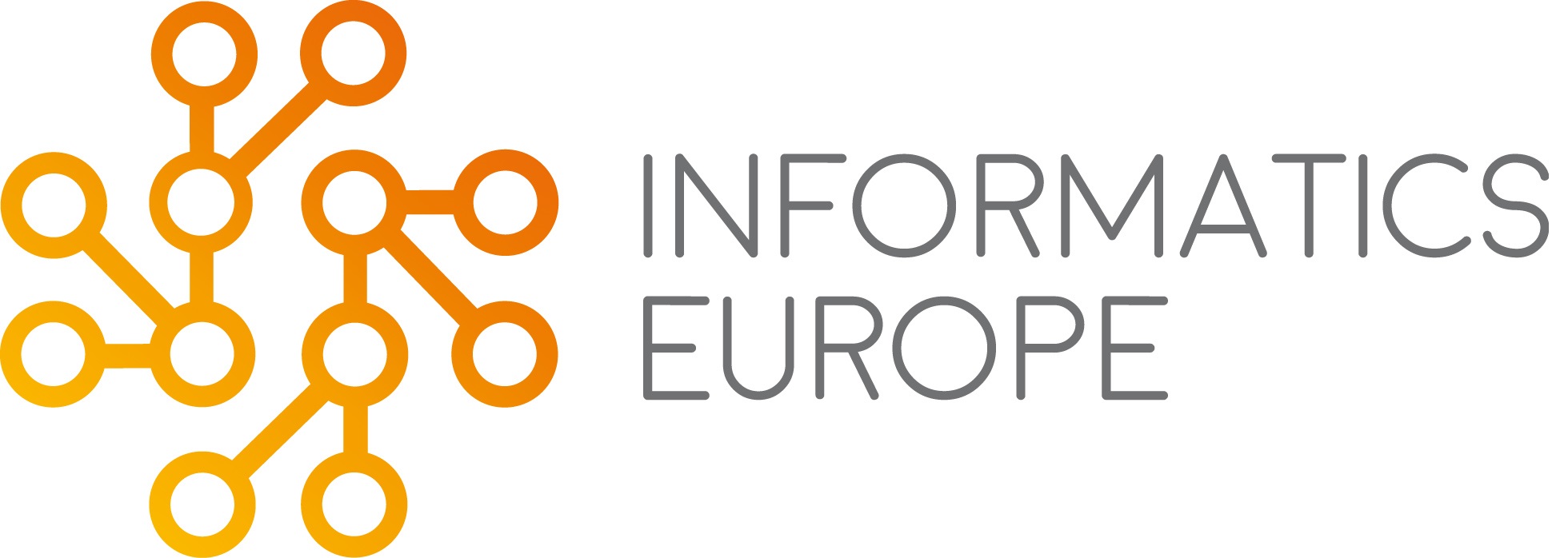

 Netlogica
Netlogica